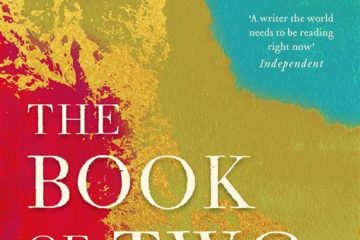Memories beside the sea – a micro story
Introduction
Amidst the ancient stone walls of St Donat’s Castle, with the sea stretching out beyond the large glass windows, a gathering of minds unfolded. We pulled our chairs close, and the air buzzed with anticipation. The topic? Stories—those elusive threads that weave through our lives, connecting us to meaning, metaphor, and each other. Organized by Steven Killick (Cardiff) and Alette Willis (Edinburgh), this event promised to unravel the future of storytelling research.
1. Reinventing Presentations
The day began with a hiccup—the dreaded PowerPoint glitch. But necessity breeds innovation. On the spot, I reinvented my presentation, shedding the digital crutch. Perhaps it was serendipity; my impromptu delivery felt more authentic, more alive. Sometimes, the unplanned path leads to richer pastures.
2. The Power of Connection
Alette Willis captured the essence of the morning session in a single word: connect. Storytelling, she asserted, enables connections. In a world fractured by disconnection, stories bridge the gaps. They link us to meaning, to metaphor, and most importantly, to one another. As practitioners and researchers, we grappled with a fundamental question: How do we convince the skeptics—the nonbelievers—that stories matter? Why should they fund research into this intangible magic?
3. Dialogues and Diverse Voices
The discussions flowed like a river of narratives at A Well at the World’s End. Here’s a glimpse:
- Prue Thimbleby: Stories in care settings—nursing homes, breast reconstruction appointments. How can narratives amplify voices?
- Elizabeth Vooght: Playfulness therapy and Kamberelis’s work—a tantalizing connection to my own research.
- Dafydd Davies-Hughes: Storytelling with young probationers in Welsh communities—unlocking potential.
- Fiona Collins: Her storytelling revival questionnaire—revealing the heartbeat of storytelling.
- Laura Simms: Stories as repair tools—transforming ex-child soldiers, rebuilding communities.
- Janet Dowling: Bereavement narratives and therapeutic practice—a delicate dance.
- Suzie Doncaster: Confidence in communication—how stories empower.
- Nicola Grove: Using storytelling to support those with learning difficulties—bridging gaps.
- Emily: Women’s stories of their bodies—across art forms, a symphony of voices.
- Jess Wilson: Storytelling in psychiatric nursing—compassion and connection.
- Trish Chilton: Social construction and meaning-making—researching stories creatively.
- Rosa Durand: Federal police in Mexico—training officers to tell stories for peace.
- Karen Lewis: The George Ewart Evans Centre For Storytelling—a hub of exploration.
4. Steve Killick’s Call to Action
As the morning sun bathed the castle, Steve Killick stepped forward. His words resonated: “Stories are a powerful way of working with people.” But it’s not enough to feel it; we must prove it. Research—the missing stitch in our tapestry—must fill in the gaps. Let’s weave stories into evidence, and evidence into understanding.
Conclusion to A Well at the World’s End Conference
In the castle’s shadow, we left with hearts full of stories. The conference had done its magic—connecting us, inspiring us. As we venture forth, let’s remember that stories are more than words; they are lifelines. So, fellow storytellers, let’s spin our tales, stitch by stitch, until the whole world is wrapped in their warmth.
And there you have it—a retelling of our conference, a patchwork of voices. May our narratives continue to intertwine, creating bridges across time and space.



0 Comments